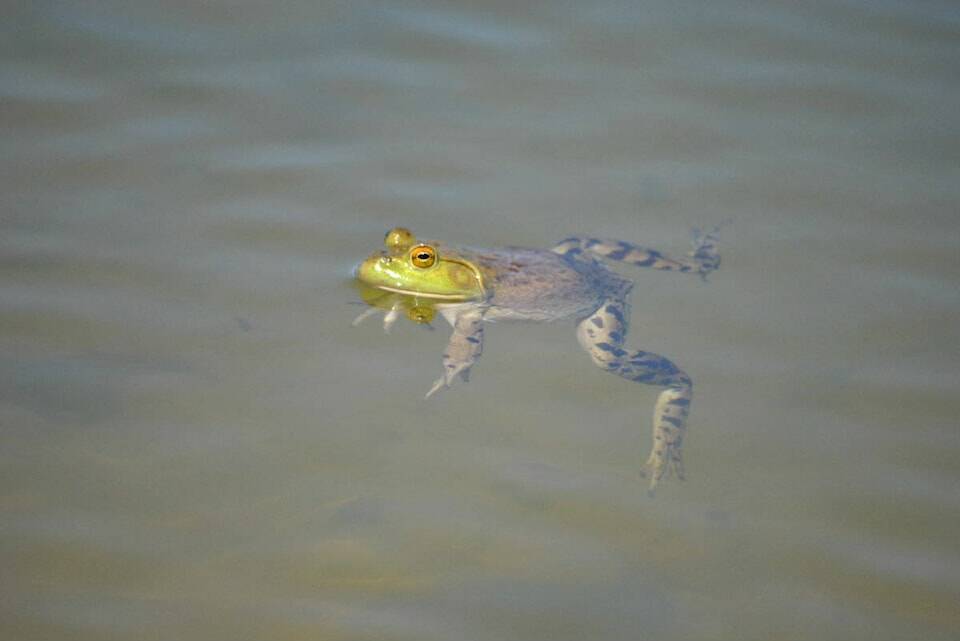North Cowichan may have come up with one way to help deal with American Bullfrogs in its jurisdiction: eat them. The bullfrogs one of the most ravenous and invasive species in the region.
At its meeting on Sept. 6, council authorized recreational fisherman Michael Indge to use the municipality’s Chemainus Lake Park after hours so he can harvest the large American Bullfrogs, which pretty much eat anything they can fit in their mouths, for personal consumption.
In a letter to council, Inge said he regularly fishes in Chemainus Lake and noticed there are a lot of the bullfrogs.
He said B.C.’s Wildlife Act lists American Bullfrogs as an invasive species that are known to kill and eat local reptiles and animals, and they can be captured or killed at any time in the province.
RELATED STORY: VORACIOUS FEEDERS AND BREEDERS: INVASIVE BULLFROGS FLOURISH WITH ISLAND WEATHER
Inge said he needs the permission of North Cowichan to enter the park, which has a dusk-to-dawn curfew, at night which is when the nocturnal bullfrogs are active.
Council decided to grant Indge’s request under the condition that he work with staff to develop an access agreement which will address safety and liability concerns.
American Bullfrogs, which can grow up to 20 centimetres long with the females producing more than 20,000 eggs in a year, were originally introduced to Vancouver Island and B.C. early in the 20th Century to be farmed for food.
However, many escaped the farms on Vancouver Island and have been quickly migrating across the island ever since in search of food and water, often gobbling up native species along the way.
RELATED STORY: SMALL CREWS BATTLE RAVENOUS INVASIVE BULLFROGS THAT GOBBLE UP NATIVE SPECIES
Coun. Tek Manhas asked staff if the agreement for Indge could be extended to other people also wishing to harvest American Bullfrogs from Chemainus Lake, and was informed the agreement would be exclusive to Indge.
Coun. Mike Caljouw asked if the wording of the agreement could be changed to cover other people as well.
“These bullfrogs are a bane of fish in small lakes, and they are also up in Crofton Lake,” he said.
“I think the more people involved in harvesting them the better.”
But CAO Ted Swabey said the municipality would prefer to evaluate each application as they come in.
“We’d want to make sure there are no questions we’d need to source out before coming to council with each request,” he said.
“My recommendation is that we stay with the current process.”

